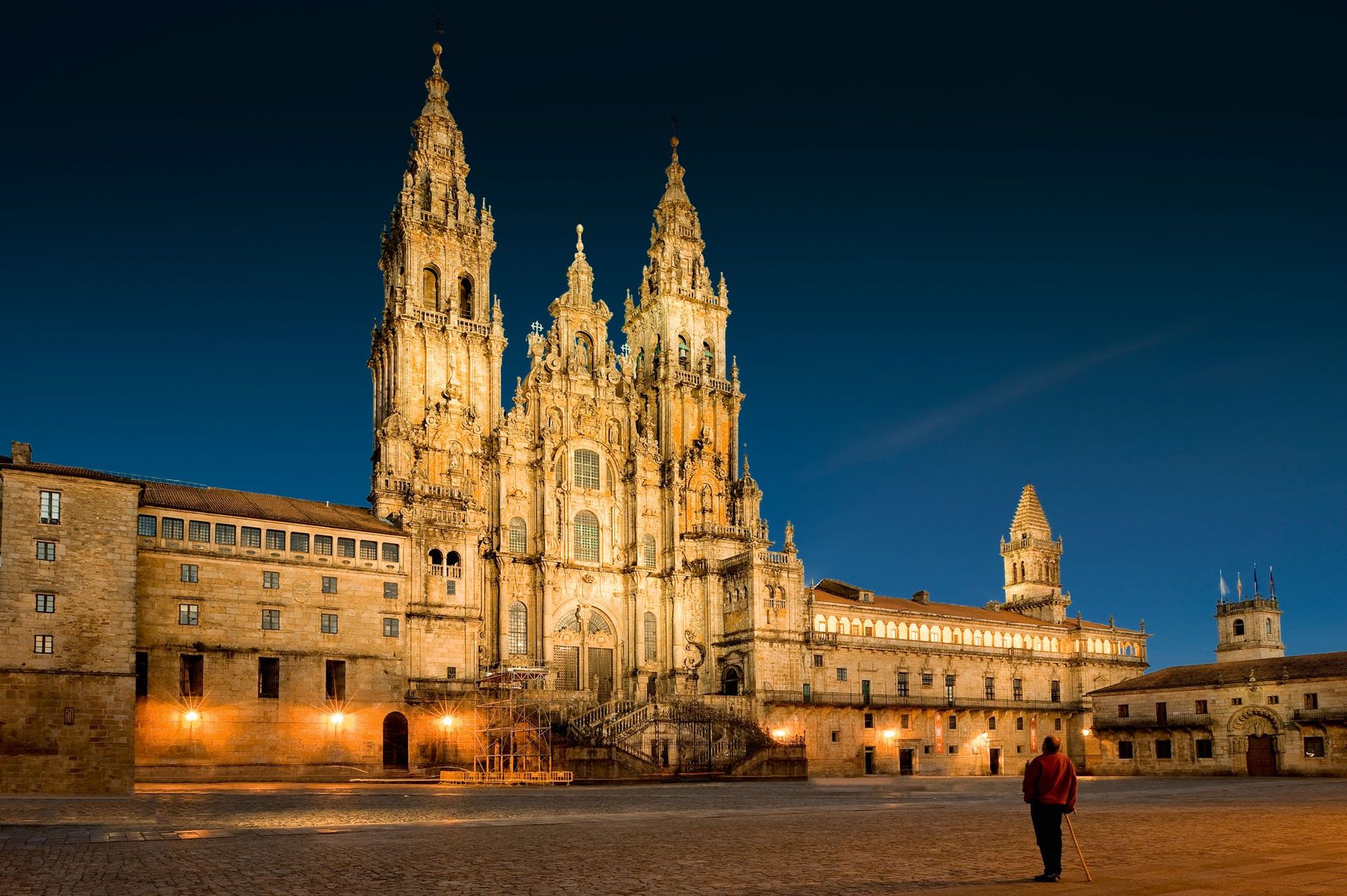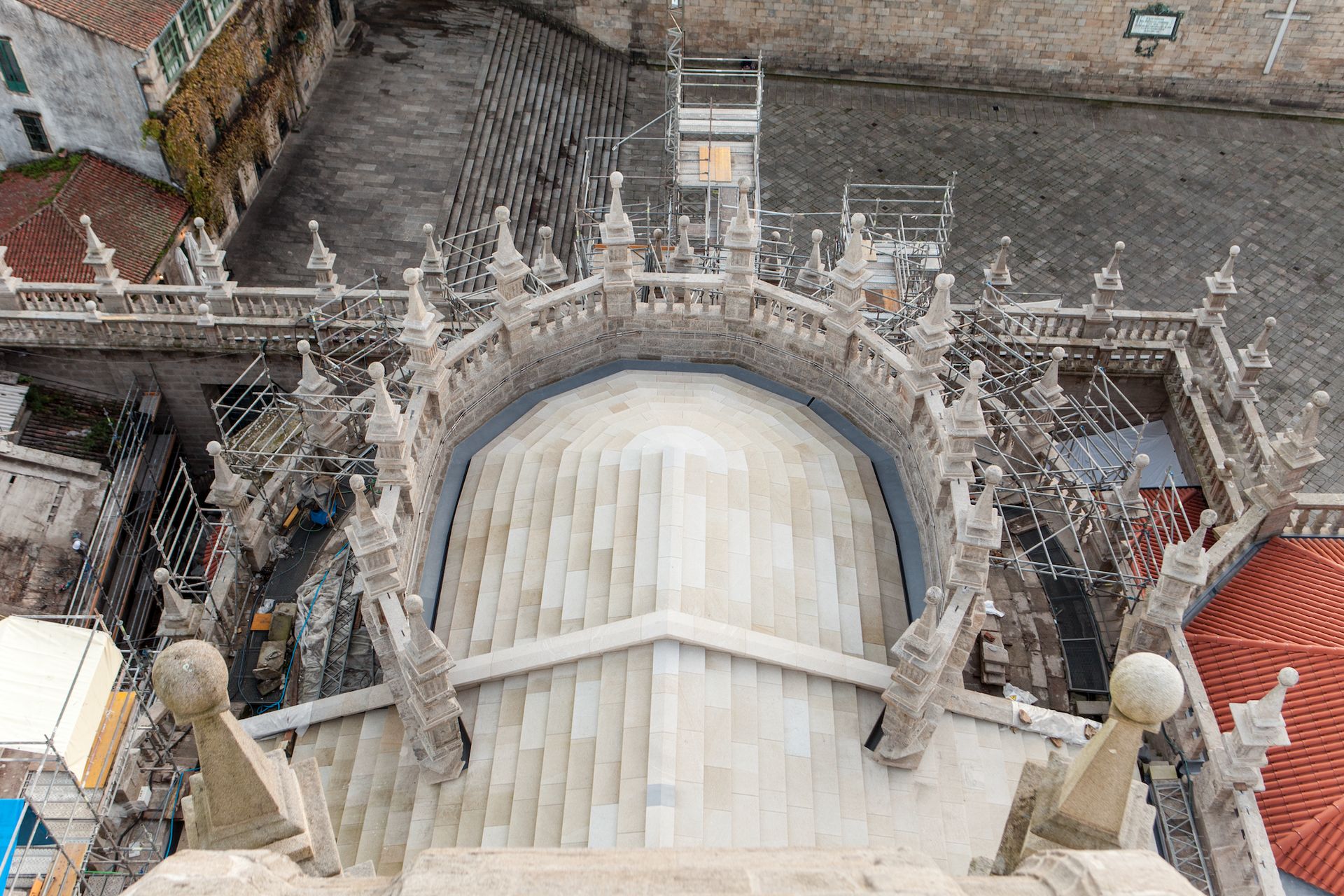
Work area
Systems & Structures
Client
PECSA
Typology
Restoration
Location
Santiago de Compostela
Area
2,432 m²
Status
Completed
2021
With restrictions and measures caused by COVID-19
12 km
Aluminium structure
750 t
Removed
+4,800
Installed petrified slabs
+ 3,500
Working hours
5
Of structure construction
The Santiago de Compostela Cathedral has been immersed in restoration work on its façades and roofs for some years now, which is no easy task considering the importance of the church and the centuries of history that lie behind it.
We have had the privilege of participating in the renovation of the church's cross roofs, for which a purpose-built structure had to be designed, manufactured and installed. A complex intervention that required more than 3,500 hours of work and a team of 10 people dedicated exclusively to this project, in order to install an aluminium structure that totals 12 km in length.
Replacing the roofs of a religious temple with a centuries-long history requires unparalleled precision. In order to reproduce the stepped stone paving dating from the second half of the 20th century, a new fastening system was devised with a ventilated air chamber that would improve the environmental conditions inside, allow the passage of installations and make the maintenance and repair of the roofs easier.
After lifting the old slabs and removing the remains of mortar that held them in place, we waterproofed the base on which the structure of aluminium profiles, created over a period of five months, rests.
The irregularity of the support on which they were working meant that a unique structural system had to be designed specifically for Santiago Cathedral, which required the creation of point clouds in order to adjust the structure. Once it was in place, 4,800 new stone slabs weighing between 40 and 150 kg were placed on it in a staggered manner. An ancient installation system that prevents water from filtering into the interior.
In addition, the designed structure lightens the weight of the roof by 750 tonnes, and makes the slabs reversible and accessible: state-of-the-art engineering at the command of history.
